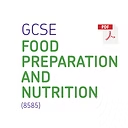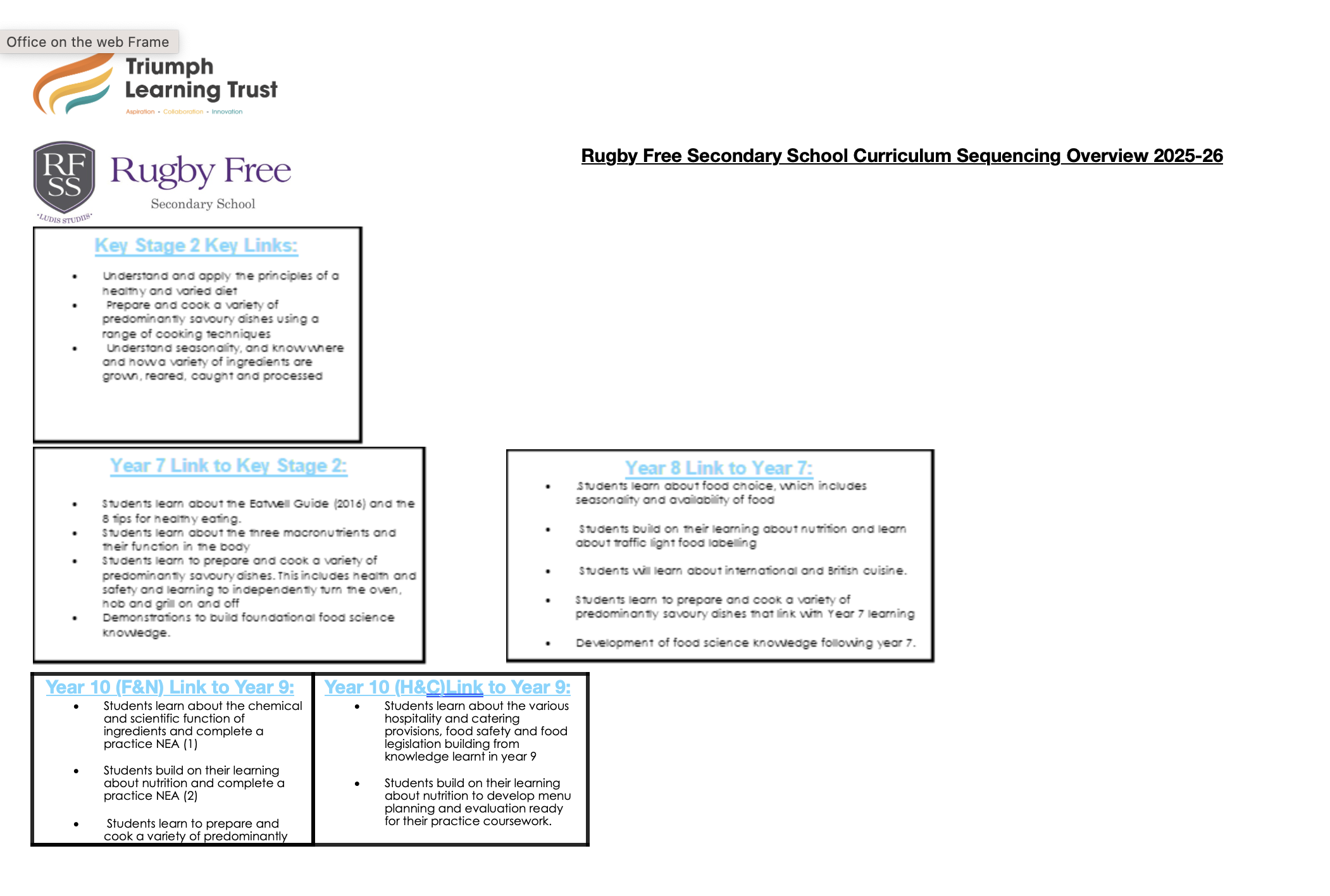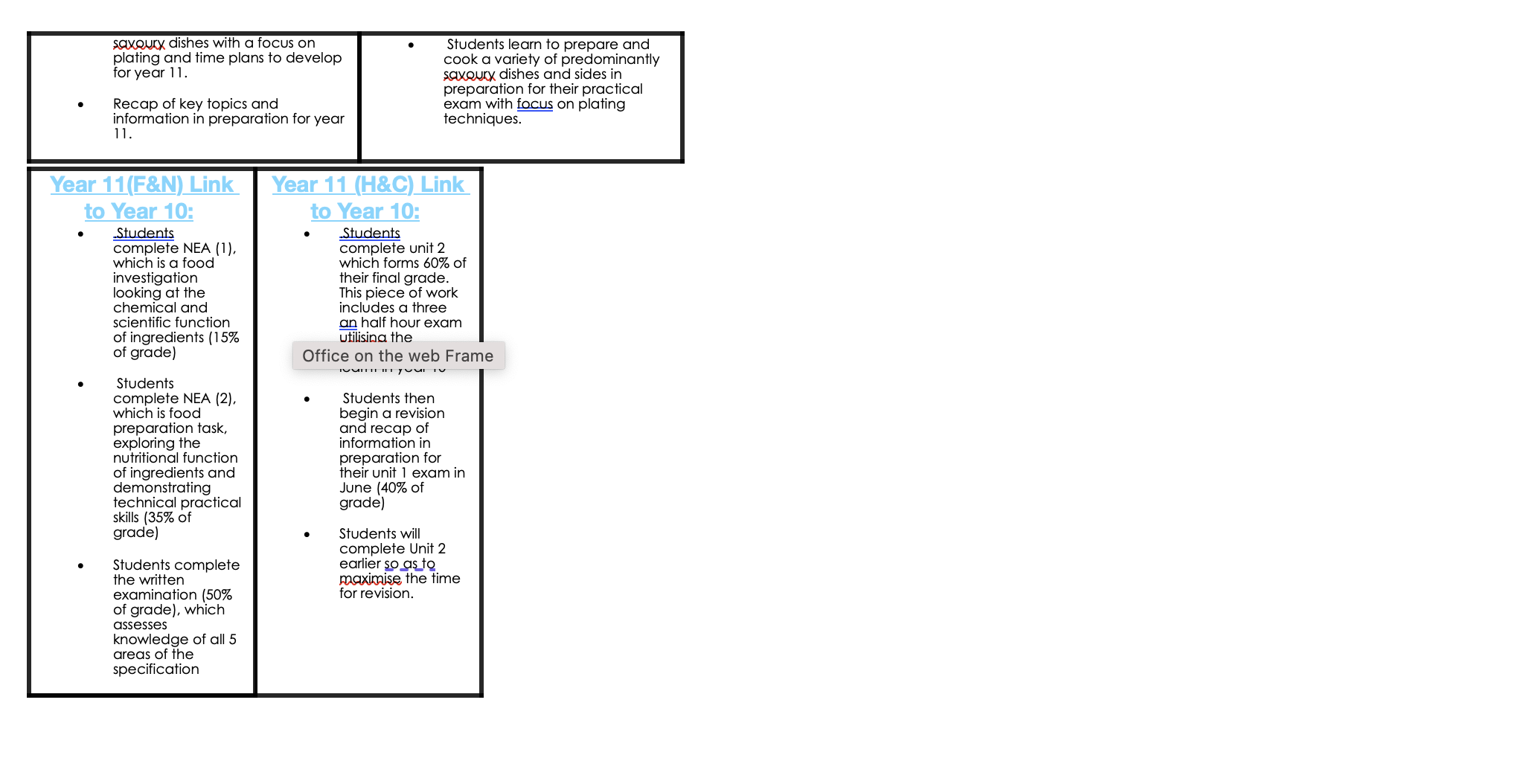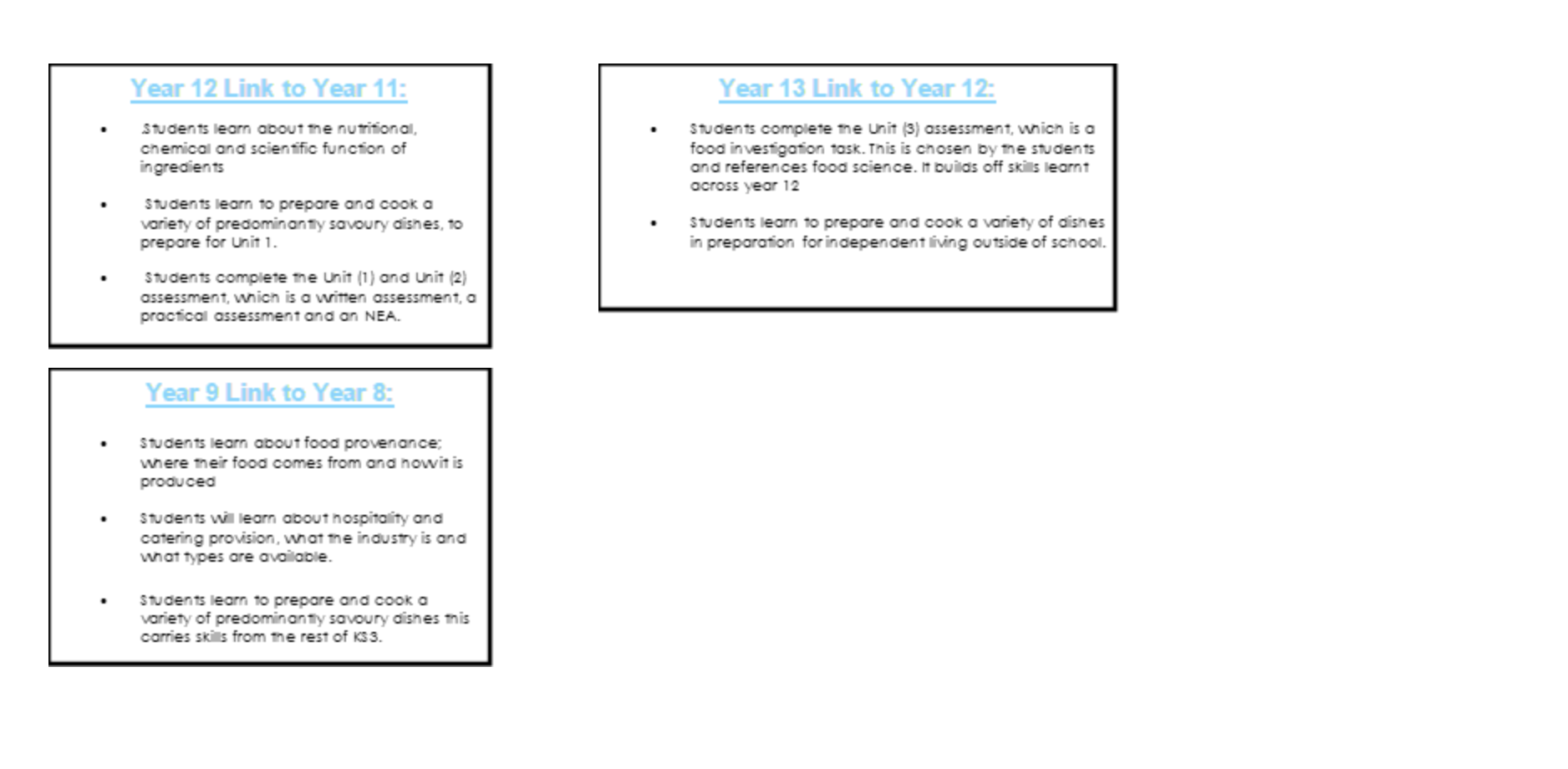Rugby Free Secondary School – Overarching Curriculum Intent (September 2025)
Curriculum Vision Statement:
Food Preparation and Nutrition is an exciting and creative subject that equips students with the essential knowledge and practical cookery skills to make informed, healthy choices about food. Our curriculum develops confident, independent learners who understand the importance of nutrition, food safety, food provenance, and food choice, while nurturing a lifelong passion for cooking.
Curriculum Context:
We recognise the importance of food education in tackling real-world challenges, including rising obesity rates, food insecurity, and environmental concerns. According to the National Child Measurement Programme (2022), obesity levels remain highest in regions such as the North East and West Midlands. At RFSS, our commitment to the DfE’s guidance (Creating a Culture and Ethos of Healthy Eating, 2023) , the Eatwell Guide (2016) and the schools own set for life ethos underpins our mission: to empower all students—regardless of background or ability—to lead healthier lives.
Our curriculum is developed with an awareness of social, cultural, and economic diversity. Carefully selected recipes, adaptive lesson planning, and targeted support for key subgroups of students ensure all learners can access and thrive within our subject. The students have the opportunity to explore the subject across KS3 and KS4 with a GCSE food preparation and nutrition or Level 2 hospitality and catering.
Curriculum Aims:
Our curriculum aims to:
- Equip students with the knowledge and confidence to make healthy, informed food choices.
- Develop students’ practical culinary skills for independent living and future employment.
- Foster an inclusive food culture, supporting a range of dietary, cultural, religious, and ethical needs.
- Promote understanding of sustainable food practices and the importance of reducing food waste.
- Encourage critical thinking and creativity in the planning, preparation, and evaluation of dishes.
- Inspire students to explore careers in hospitality, nutrition, catering, and food science.
- Celebrate British produce and seasonal ingredients, while also valuing global culinary diversity.
Curriculum ‘How’:
We build a rich and challenging curriculum by:
- Sequencing knowledge and skills for long-term learning and recall across both key stages.
- Integrating nutritional theory with practical cookery, reinforcing learning through hands-on experience.
- Embedding opportunities for independent enquiry, adaptation, and innovation.
- Using assessment and feedback to develop students’ ability to reflect, refine and evaluate their own work.
- Providing targeted support and challenge to ensure high expectations for all students.
- Encouraging students to critically analyse their work in relation to nutrition, technical skill and food provenance.
- Introducing students to a range of medium and high level skills, to promote challenge for all.
Curriculum ‘What’:
The Food and Nutrition curriculum reflects our whole-school mission to be “Set for Life” by building not just academic knowledge but essential life skills and cultural capital.
We nurture students to become:
- Independent learners, confident in preparing healthy meals.
- Collaborative thinkers, capable of problem-solving and adapting in real-world contexts.
- Curious students, respectful of the diverse food practices and traditions of others.
- Resilient and reflective individuals, able to learn from feedback and persist through challenges.
Curriculum Impact & Outcomes:
By the end of their journey at RFSS, students will:
- Understand the principles of a healthy diet and be able to apply them confidently.
- Be proficient in preparing a variety of nutritious, cost-effective dishes.
- Possess a foundation in food science, hygiene, and safety.
- Be prepared for further study or careers in the food, hospitality, nutrition and health sectors.
- Leave with the skills, values and confidence needed to live independently, healthily, and responsibly.




